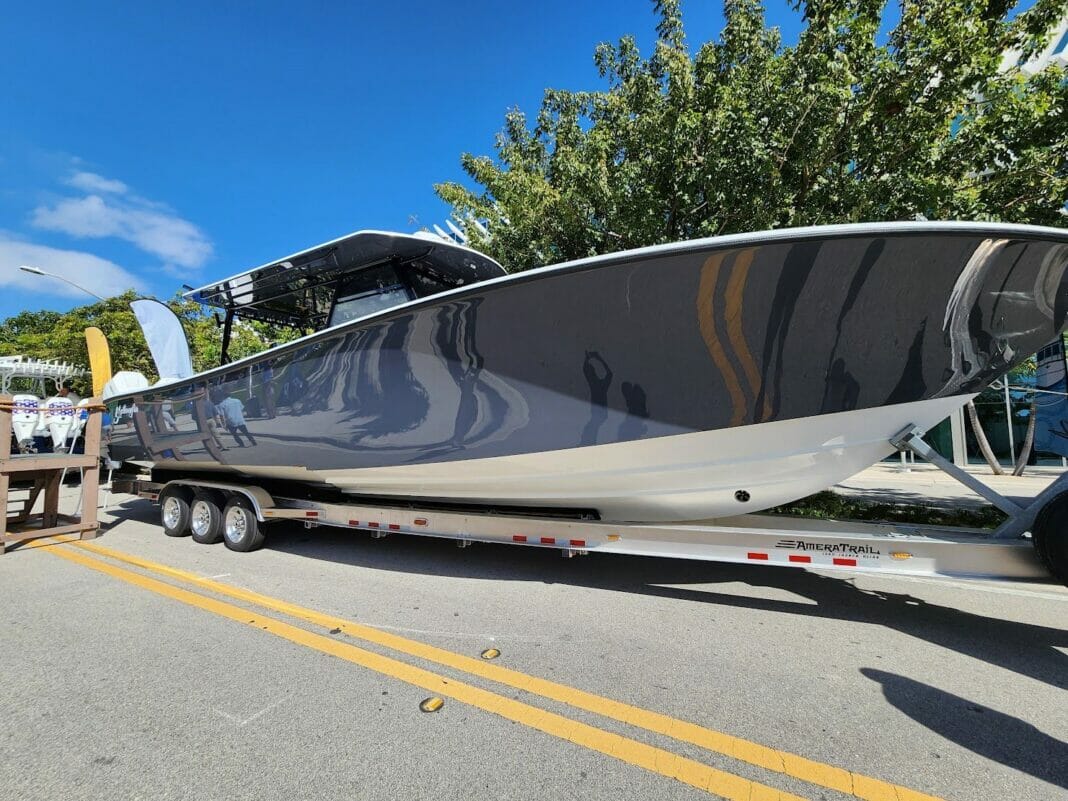Boat owners looking to transport their vessels from one water source to another need a reliable boat trailer. However, there are numerous regulations and laws that one must adhere to when towing a boat on the nation’s roads. This comprehensive guide offers an overview of general boat trailer regulations and highlights some state-specific requirements. As rules and regulations vary between states, always consult your state’s Department of Transportation website to ensure compliance with local laws.
General Boat Trailer Requirements
Size and Weight Limitations
- In most states, the maximum width for a boat trailer on the road is 8.5 feet. Trailers exceeding this width may require special permits and follow specific travel restrictions.
- The combined weight of the trailer, boat, and towing vehicle should not exceed the towing capacity specified by the vehicle’s manufacturer.
- Overloaded trailers can cause accidents and result in fines.
Brakes and Breakaway Systems
- Trailers with a gross weight exceeding a specific limit, typically around 3,000 pounds, require a braking system. This varies by state, so review the regulations for your location.
- A breakaway system is essential if the trailer exceeds a certain weight, as stipulated by state regulations. This system will activate the trailer’s brakes if the trailer detaches from the towing vehicle.
Lighting and Reflector Requirements
- Taillights, brake lights, turn signals, and license plate lights must be functional and visible on your boat trailer.
- Properly working side marker lights and reflectors are required on trailers exceeding a certain length, generally around 16 to 20 feet, depending on the state.
- All reflectors should be securely attached and visible from appropriate angles.
Tires and Wheels
- Tires must be in good condition and free of defects. Regularly check for wear and replace them as needed.
- Ensure your tires are properly inflated according to the manufacturer’s specifications.
- Utilize a spare tire and lug wrench to replace a damaged or flat tire while on the road.
License and Registration
- Your boat trailer must be registered in your state of residence.
- Ensure your license plate is securely attached and visible.
- In certain cases, you might have to provide proof of ownership and pay applicable taxes when registering the trailer.
State-specific Regulations and Laws: Examples
California
- The maximum towing speed is 55 mph on highways.
- The towing vehicle’s side mirrors should cover 200 feet behind the trailer.
- Trailers over 4,500 pounds, when fully-loaded, require a weight equalizing hitch with sway control.
Florida
- Trailers exceeding 3,000 pounds must have working brakes that can be controlled by the driver.
- A safety chain or similar device is required when towing to prevent the trailer from becoming detached.
- Trailers exceeding 2,000 pounds require a title in addition to the registration.
Texas
- Licenses are not required for boat trailers used exclusively for agricultural or utility purposes.
- Trailers more than 80 inches in width must be equipped with red or amber side marker lights.
- Safety chains are required, and they must be strong enough to maintain the connection between the towing vehicle and trailer in case of hitch failure.
As a boat owner, it is crucial to understand and adhere to state-specific regulations and laws regarding boat trailers. Ensuring proper maintenance, registration, lighting, and safety features will contribute to safe travels while towing your boat. Remember to consult your state’s Department of Transportation resources for detailed information on local requirements.


